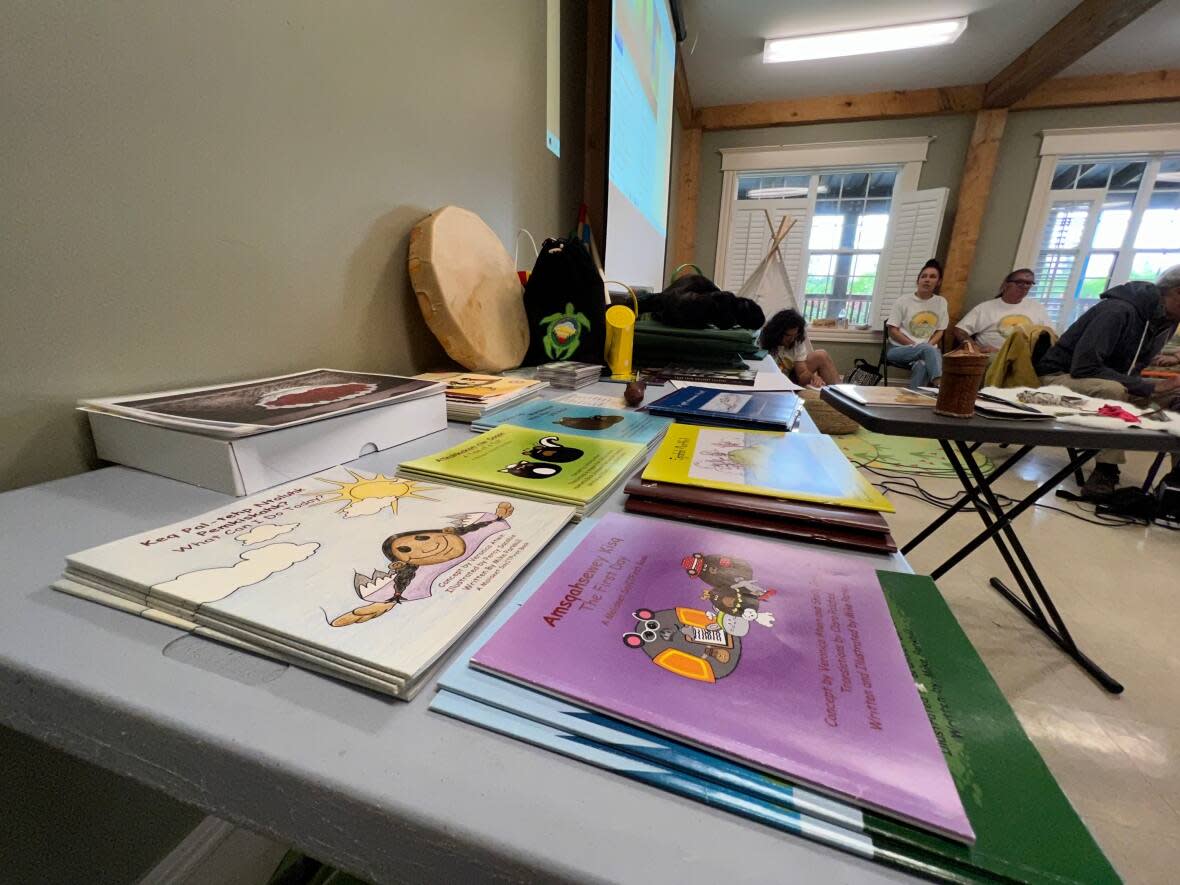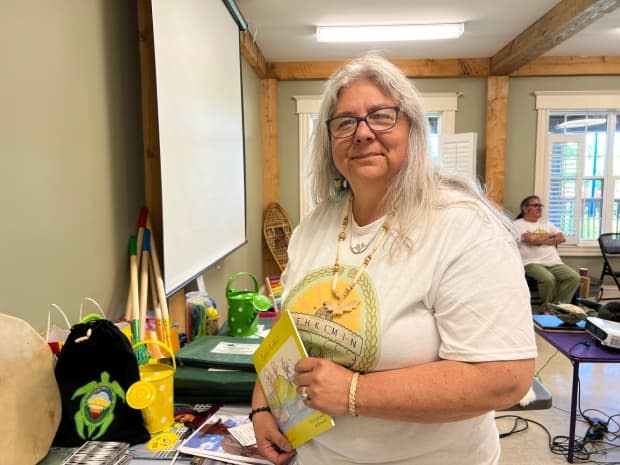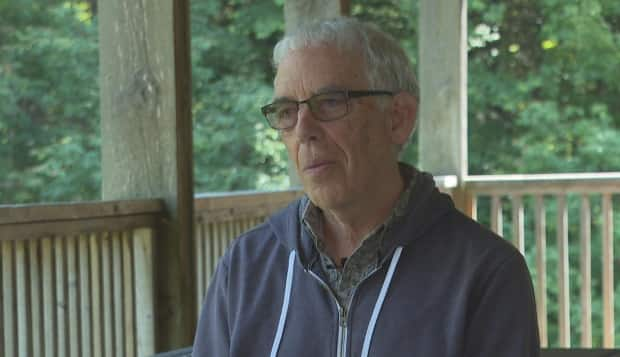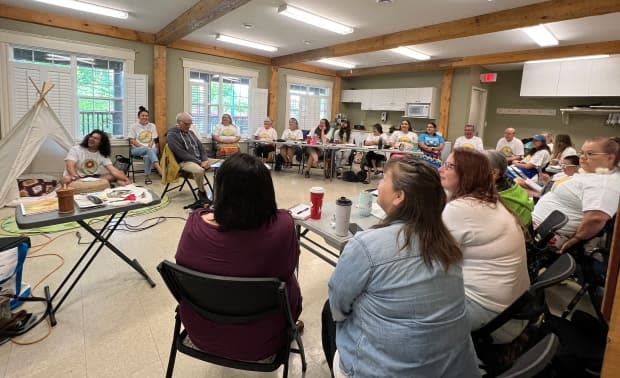Wolastoqey immersion school launches curriculum

A Wolastoqey language immersion school has launched its curriculum with the help of elders and teachers in the community.
The Kehkimin Wolastoqey language immersion school in Fredericton is one step closer to opening this fall after a four-day camp held from Thursday to Sunday.
"I'm so excited, so happy," said Lisa Perley-Dutcher, the chair of Kehkimin Inc. "This is something that a lot of people working in language knew … is what needs to be done."
Perley-Dutcher said the purpose of the camp was to introduce the curriculum developed over six months to potential teachers and get feedback from elders.
"We wanted the elders to be around this work that we developed, to get their feedback and see the final product," said Perley-Dutcher. "We wanted to launch it in a good way."
The camp was held at Killarney Park, where the school has a a one-year lease granted this spring by Fredericton city council.
Perley-Dutcher said the curriculum designed for kindergarten to Grade 4 includes 17 lessons for teachers to use as guides that were role-played by those at the camp.
"We wanted to see how practically that would play out," she said.

Perley-Dutcher said the lessons include teachings on ceremony smudging, on animal totems, how to play safe outside and on weather and the climate.
She said the school has partnered with Hayes Farms, where students will be brought to learn how food is grown.
Perley-Dutcher said an educational video showing the process of picking sweetgrass and the language involved was filmed last summer as part of the curriculum.
She said the curriculum has been opened up to the public and can be downloaded online.
"It's a resource for teachers … any teachers in any school can learn how to speak Wolastoqey."
A community effort
Robert Leavitt, a retired University of New Brunswick professor, has worked on the Passamaquoddy-Maliseet dictionary project for 50 years and is editing the school's curriculum.
"The language is very different from English and French and other European languages, so you need a different approach to expressing ideas," he said.
Unlike English, some words in Maliseet and Wolastoqey can represent entire stories and larger meanings, said Leavitt.

"How do you get that idea across and how do you help new speakers learn that process?" he said.
He said repetition and concrete activities where children use their bodies or hands while talking are techniques to make learning the language easier.
"I think it's very exciting, it's good to see so many people working together and so much commitment," said Leavitt.
A sign of hope
Ron Tremblay, the Wolastoq Grand Chief and board member of Kehkimin, said the morale of the teachers was "wonderful" during the camp.
He said a lot of the inspiration for this school and curriculum came from stories of other cultures that were able to save their language.

"Language is our identity, it's our culture, it's who we are," said Tremblay.
Recruitment underway
Perley-Dutcher said the school is looking for teachers and students.
She said only 10 children will be accepted into the school for the first year with two teachers needed. An elder who can speak fluently will also always be on site.

Perley-Dutcher said once all the children are recruited, the school will work with parents to figure out what daily schedule works best for them.

 Yahoo Movies
Yahoo Movies 
